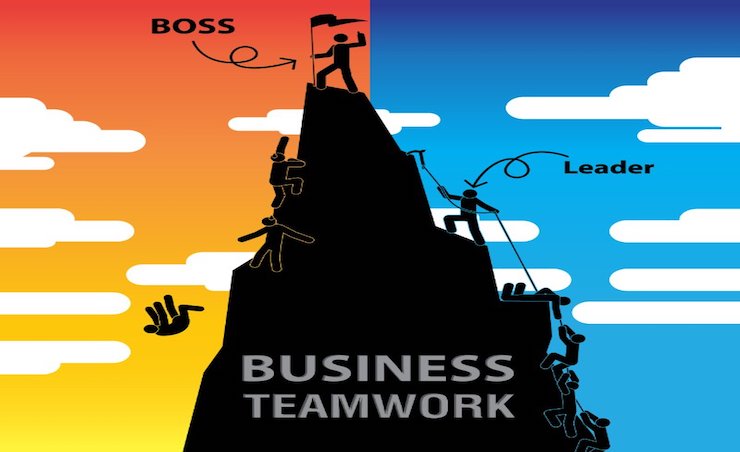 Leadership is simply defined in my book as a person’s investment and ownership in human capital, or people. In my 12+ years working as a VP in Corporate America and my 10+ years as an entrepreneur having managed teams up to 800 employees and over $50M in annual revenue, I learned something vital about leading people. It isn’t optional if you wish to achieve higher levels of success in your work or business.
Leadership is simply defined in my book as a person’s investment and ownership in human capital, or people. In my 12+ years working as a VP in Corporate America and my 10+ years as an entrepreneur having managed teams up to 800 employees and over $50M in annual revenue, I learned something vital about leading people. It isn’t optional if you wish to achieve higher levels of success in your work or business.
Many times people confuse the difference between being a boss and being a leader and simply assume that the it lies within the way you treat your employees, but it is a bit more complicated than that.
Bosses:
Being a boss, is comparable to being a manager or supervisor. You are hired to manage a process and enable your team to be as productive as possible to reach the goals assigned. Your number one priority isn’t to make sure you have innovated the process, built talent, or to find a shortcut to the goal; but to simply accomplish the goal within the guidelines you have been provided.
This in itself is also a necessity in leadership, but it is looked at from a different angle.
Leader:
Being a leader, on the other hand, enables you to look at the idea of goals from a different light; one that involves talent, efficiency, and support. A leader’s number one priority is to invest in his or her team’s infrastructure, which focuses primarily on growing talent to its maximum capacity.
The difference lies in the fact that leaders don’t look at people as employees; they look at them as part of a bigger purpose and each having a vital role to play within the business or project. There is a need to support the growth of a team member more so than that of an employee. Employees are replaceable but team members are groomed and coached to always be the best they can be.
This ultimately enables even further growth for the business and the leader leading them.
Most bosses or managers hire people who complement their weaknesses to fulfill a need for employees to get the job done. While leaders surround themselves with team members who amplify their strengths while also complementing their needs.
The other major differentiator between a leader and a boss is the culture created around each. A boss will look at a culture of exclusion, as the distance between themselves and their employees helps them establish authority.
A leader will establish a culture that is transparent and inclusive, as their goal is to make each person understand their purpose and role under their leadership. The transparency is used by leaders help create trust between people.
Finally, while many traits found in leaders and bosses may seem like they are the same, there is one fundamental difference: people tend to work for a boss, but follow a leader. That leads me to asking you:
Why should anyone follow you?
This article was previously published on Business2Community



